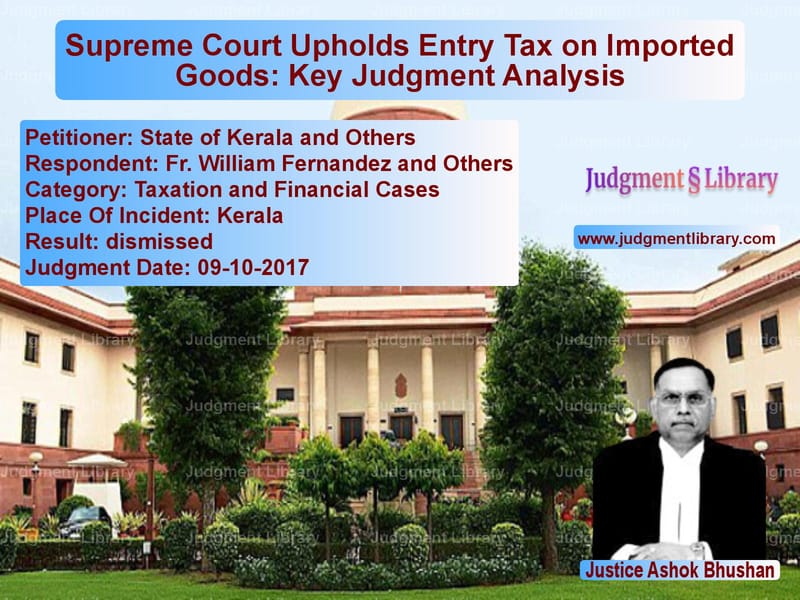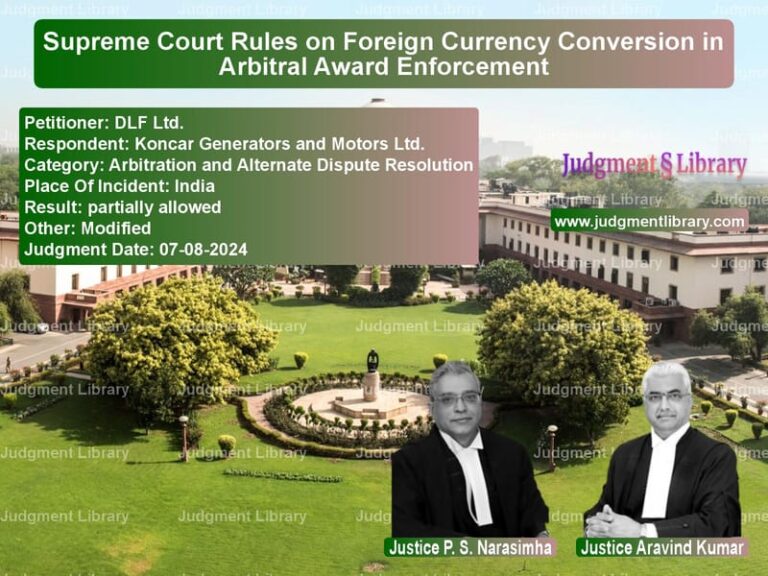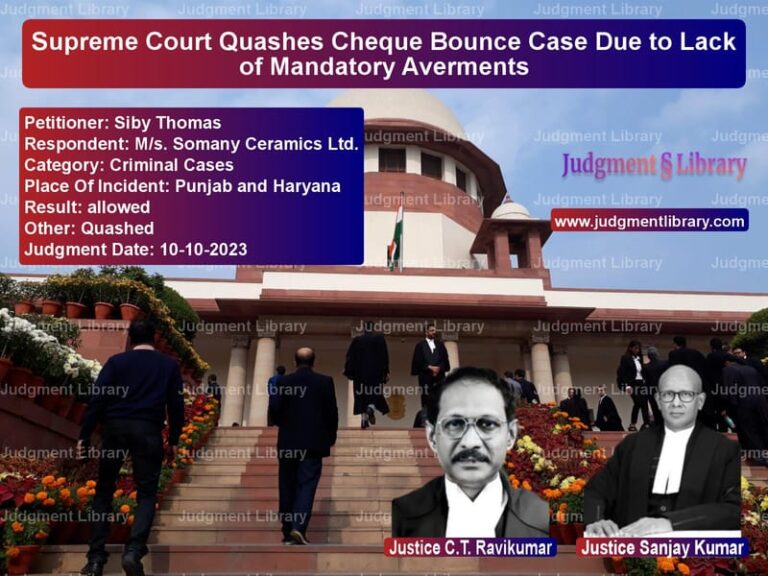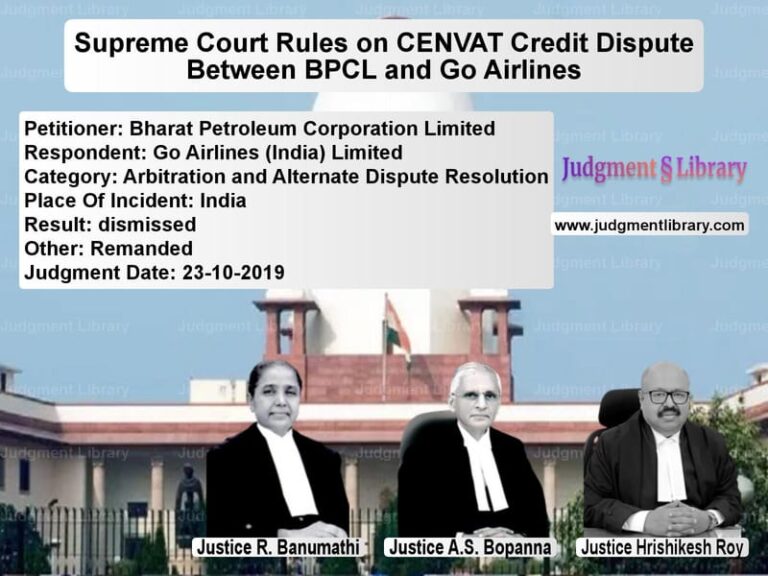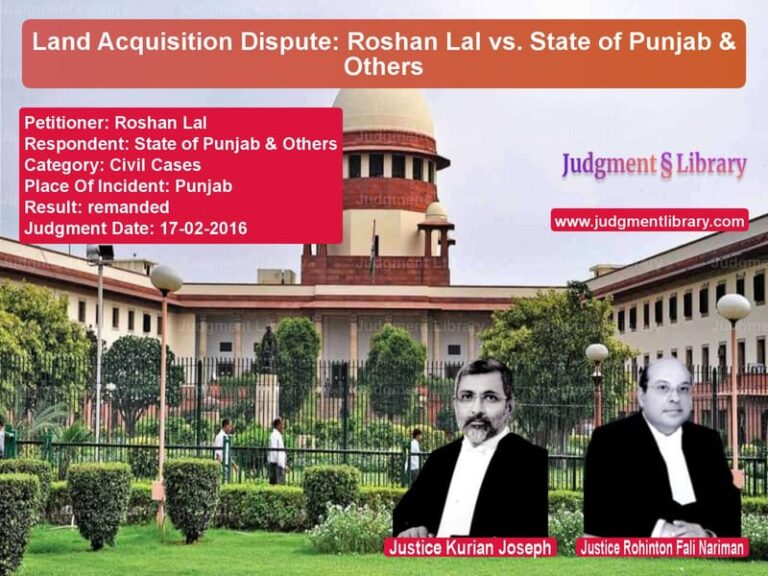Supreme Court Upholds Entry Tax on Imported Goods: Key Judgment Analysis
The Supreme Court recently ruled on the legality of entry tax on goods imported from foreign countries into states such as Kerala, Bihar, Orissa, and Jharkhand. This judgment addressed a long-standing dispute over whether state legislatures have the authority to impose an entry tax on imported goods, which has significant financial implications for businesses involved in international trade.
The primary question before the Court was whether states have the legislative competence to impose entry tax on goods imported from outside India, considering that taxation of import and customs duties fall under the exclusive domain of Parliament. The petitioners, including major corporations like Tata Steel Limited, National Aluminium Company Limited, and ITC Ltd., challenged the constitutionality of such taxes imposed by the respective state governments.
Background of the Case
The appeals before the Supreme Court arose from multiple high court decisions that either upheld or struck down state-imposed entry taxes on imported goods. The petitioners argued that state legislatures had no power under the Constitution to tax goods imported from outside India since this area was exclusively governed by the Union government under Entries 41 and 83 of List I of the Seventh Schedule.
Several high courts, including those of Orissa, Kerala, and Jharkhand, had ruled differently on the issue. While some courts upheld the state laws, others struck them down, leading to inconsistencies in taxation across states. To resolve this legal uncertainty, the Supreme Court was called upon to decide the matter.
Arguments of the Petitioners
The petitioners made the following key arguments:
- The power to impose taxes on imports and exports lies exclusively with the Parliament under Entries 41 and 83 of List I of the Constitution.
- Entry tax on imported goods amounted to a customs duty, which is outside the jurisdiction of state legislatures.
- Article 286 of the Constitution explicitly prohibits states from imposing a tax on goods imported into India.
- The goods, even after passing through customs, remain in the course of import until they reach the premises of the importer.
- State-imposed entry taxes create a restriction on trade and commerce, violating Article 301 of the Constitution.
Arguments of the Respondents (State Governments)
The state governments defending the entry tax presented the following key points:
- Entry tax is distinct from customs duty and is imposed on goods entering a local area for consumption, sale, or use.
- Under Entry 52 of List II of the Constitution, states have the power to levy entry tax on goods brought into their jurisdiction.
- Once the goods clear customs and enter the domestic market, they cease to be ‘imported goods’ and are subject to state taxation like any other domestically sourced goods.
- The states argued that taxation on entry of goods was meant to fund infrastructure development and services that benefit businesses operating within their territories.
Supreme Court’s Key Findings
The Supreme Court delivered a landmark ruling in favor of the state governments, holding that:
“The charging event arises on the entry of goods into a local area for consumption, use, or sale. Any goods entering into a local area of a state, whether from another state or outside the country, can be taxed by the state under Entry 52 of List II.”
The Court further held that:
“Importation happens before clearance for home consumption, and after clearance, the character of the goods as ‘imported goods’ ceases. The taxable event for entry tax occurs when the goods enter a local area for sale, use, or consumption.”
The judgment also emphasized that there is no overlap between entry tax and customs duty, as customs duty is levied at the point of importation, while entry tax applies to goods once they are in the domestic trade cycle.
Conclusion and Implications
The Supreme Court’s decision has significant implications for businesses and state governments alike. It clarifies that:
- States have the authority to impose entry tax on imported goods once they have cleared customs.
- Businesses must factor in entry tax liabilities when importing goods into states that impose such levies.
- The ruling provides uniformity across states, reducing the scope for legal challenges on this issue.
By upholding the validity of state-imposed entry tax on imported goods, the Supreme Court has affirmed the legislative powers of states while maintaining the federal structure of taxation in India.
Don’t miss out on the full details! Download the complete judgment in PDF format below and gain valuable insights instantly!
Download Judgment: State of Kerala and vs Fr. William Fernande Supreme Court of India Judgment Dated 09-10-2017.pdf
Direct Downlaod Judgment: Direct downlaod this Judgment
See all petitions in Tax Evasion Cases
See all petitions in Banking Regulations
See all petitions in Income Tax Disputes
See all petitions in Judgment by Ashok Bhushan
See all petitions in dismissed
See all petitions in supreme court of India judgments October 2017
See all petitions in 2017 judgments
See all posts in Taxation and Financial Cases Category
See all allowed petitions in Taxation and Financial Cases Category
See all Dismissed petitions in Taxation and Financial Cases Category
See all partially allowed petitions in Taxation and Financial Cases Category

